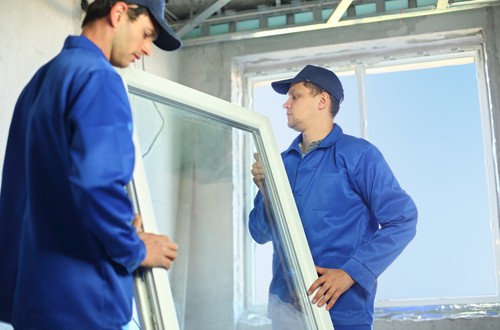Noise pollution, also known as environmental noise or sound pollution, is defined as regular exposure to elevated sound levels that may have adverse effects in humans and other living organisms. According to the World Health Organization, sound levels under 70 dB are not damaging to living organisms, regardless of how long or consistent the exposure is. On the other hand, exposure for more than 8 hours to constant noise beyond 85 dB may be hazardous.
This means that if you work for 8 hours daily in close proximity to a busy road or highway, you are very likely exposed to traffic noise pollution around 85dB. With so many people living and/or working in such conditions, it’s understandable that we’re talking about a serious threat to our health. Luckily, there are ways in which we can deal with this problem.
Upgrading insulation
To begin with, you might want to invest in soundproofing to provide an effective and long-term solution to dealing with noise pollution. You can install acoustic wall panels that are great at eliminating unwanted sounds and dramatically reducing the level of noise in your property. Also, don’t forget rugs and carpets, which absorb the sound of particularly hard floors. Carpets can reduce the sound of someone walking by up to 34 dB, compared to laminate or wooden flooring. Also, a carpet helps to reduce the reverberations time by half compared to hard flooring.
Headphones and earplugs
One of the short-term solutions that are suitable for things such as construction works carried out on your street or in your background, noise cancelling headphones or earplugs can do a very good job, but they should be used only as a temporary solution that you occasionally use. They will allow you to get a good night’s sleep and get enough rest, despite the noise in your vicinity.
Traffic noise
Noise pollution is a major environmental health problem in many parts of the world where there is a lot of traffic. Actually, road traffic noise is the dominant source affecting human exposure above the EU’s threshold of 55 dB for daily exposure and 50 dB for night exposure. Railway is the second largest source, with aircraft noise closely behind it. The World Health Organization estimates that traffic noise is the second most harmful environmental stressor in Europe, behind air pollution. One of the ways you can help to combat this issue is to have a modern exhaust muffler installed in your vehicle, which would allow you to both get a better performance from your car and reduce the sound coming out of it.
Window shutters
When it comes to your home, insulation is the key. That’s why you need to have high-quality window shutters, which can reduce noisy sounds coming from outside your home. They simply create a barrier between external noises and your property’s windows. So, apart from providing privacy and preventing excess sunlight from getting into your home, they are also great when it comes to reducing the noise level inside your home.
Electrical appliances
You know that you should turn off electrical appliances when you’re not using them in order to lower your energy consumption, but you should remember that in doing so you’re also tackling noise pollution in your home. Namely, even when they aren’t in use, electrical appliances can still produce some noise, though often barely audible. Still, it can be quite high-pitched at times and you should turn those appliances off whenever possible if you want a quieter home. Also, you should keep noisy electrical appliances such as a tumble dryer, air conditioning unit or washing machine as far away as possible from bedrooms, as this will help to improve the quality of your sleep and give you some peace and quiet.
Outdoor protection
One more thing you can do to reduce noise pollution is to install fences around your home if you don’t already have them. They reduce noise, since the vibrations and sound ways are interrupted by this obstacle as they pass through the air. An additional benefit is that you also protect the privacy of your front- and backyard.
You should also consider planting as many trees and bushes around your house as possible. This will not only make your property look much nicer, but it will also boost the surrounding air quality, in addition to helping eliminate noise pollution. Just make sure you choose the types of plants that thrive in the area where you live.
Ideally, you should avoid noisy environments as much as possible, but sometimes you just can’t do that. What you can do, however, is make sure your home is well protected and insulated and have a pair of earplugs or noise-cancelling headphones ready for those moments when you’re exposed to high levels of noise.



